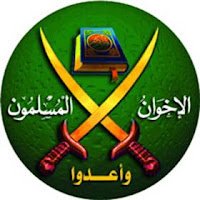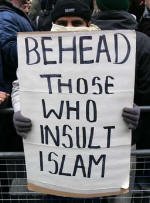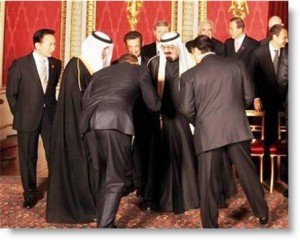The Rise and Threat of Radical Islam: An Interview with Brigitte Gabriel
Right now, we have a President who is practically endangering the lives of Americans by putting foreign interests first, before America, while ignoring what needs to be done in order to protect and secure the United States of America, the same country he took an oath to protect—he’s not doing the job.
By Roger Aronoff
 With so much media attention in this country focused on the presidential race and the Supreme Court’s ruling on ObamaCare, not enough attention is being paid to much of what is going on in the Middle East, and at the United Nations. Egypt has recently chosen as its next president Mohamed Morsi, who was the candidate of the Muslim Brotherhood. He has since ended his association, at least officially, with that organization, which spawned Hamas, the terrorist organization that controls Gaza. And while Morsi has been congratulated by President Obama, and invited for a visit to the U.S., there is great concern by many that this development does not bode well for the advancement of peace and freedom for the people of Egypt and the region.
With so much media attention in this country focused on the presidential race and the Supreme Court’s ruling on ObamaCare, not enough attention is being paid to much of what is going on in the Middle East, and at the United Nations. Egypt has recently chosen as its next president Mohamed Morsi, who was the candidate of the Muslim Brotherhood. He has since ended his association, at least officially, with that organization, which spawned Hamas, the terrorist organization that controls Gaza. And while Morsi has been congratulated by President Obama, and invited for a visit to the U.S., there is great concern by many that this development does not bode well for the advancement of peace and freedom for the people of Egypt and the region.
What supposedly started out as a democratic, secular uprising in Egypt, Yemen, Libya and other parts of the Arab world, the so-called Arab Spring has become a stunning victory for Islamist forces, mostly forces closely associated with the Muslim Brotherhood. As terrorism expert Steve Emerson pointed out in a recent column, it was just in the past few months, before he was elected president, that Mohamed Morsi “promised the Quran would be the new constitution of the nation, and then led the crowd in chants of the Muslim Brotherhood’s motto. ‘The Quran is our constitution,’ ‘jihad is our path,’ and ‘death for the sake of Allah is our most lofty aspiration,’ the jubilant crowd repeated after Morsi.”
In recent days we have learned that, incredibly, Iran was elected to a top post on the UN Arms Trade Treaty conference, and Syria is about to join China, Cuba, Russia and Saudi Arabia on the UN Human Rights Council. The implications of all this are far reaching, and of great relevance to Americans.
Accuracy in Media recently interviewed Brigitte Gabriel, the founder of ACT! For America, a grassroots national security movement in the U.S., and the author of They Must Be Stopped: Why We Must Defeat Radical Islam and How We Can Do It, and Because They Hate: A Survivor of Islamic Terror Warns America. Ms. Gabriel is a leading expert on radical Islam and Islamic terrorism, and has given briefings to the Australian Prime Minister, to Members of the British Parliament, the U.S. Congress, the U.S. Special Operations Command, and the FBI.
She described her firsthand experience with the forces of radical Islam, growing up as a Christian in Lebanon, and how the civil war in Lebanon fortuitously took her to Israel, and helped open her eyes to the realities around her.
Regarding the Muslim Brotherhood, and its direct impact on America, Gabriel said, “We have foreign forces and Islamic front groups representing the Muslim Brotherhood operating in the United States that has infiltrated our society on every level—including government—who are now influencing policy. To give you an example—ISNA, the Islamic Society of North America. They are now advisors to President Obama about foreign policy. Is it any wonder why President Obama is throwing Israel under the bus, for example? Now, why we should be so concerned about the groups like ISNA and CAIR [Council on American-Islamic Relations]—because they are mentioned in The Muslim Brotherhood Project, which was presented as evidence in the Holy Land Foundation trial, which is the largest terrorism trial ever in the history of the United States, where the United States took to court the Holy Land Foundation, where our government handed down 108 ‘Guilty’ verdicts against Muslim-Americans or Muslim-American organizations who were raising money in the United States and sending it to the Middle East to fund terrorist operations in the Middle East.”
What follows are excerpts from the interview. You can read the complete transcript of the interview, or listen to it here.
GABRIEL: In 1975, when the war started [in Lebanon], the radical  Islamists blew up my home, bringing it down, burying me under the rubble, wounded, as they shouted, “Allahu Akbar!” That’s when my 9/11 happened to me. I ended up in a hospital, wounded, for two and a half months, and, later, ended up coming and living in a bomb shelter with my parents. For the next seven years of my life, I lived in an underground eight-by-ten room, basically fighting to survive. When I would ask my parents, “Why did they do this to us? Why did they bomb our home? Why am I wounded and lying in a hospital bed?” my father would tell me, “Because we are Christians, the Muslims consider us infidels, and they want to kill us.” So I learned, since I was a ten-year-old little girl, that I am wanted dead simply because I was born into the Christian faith.
Islamists blew up my home, bringing it down, burying me under the rubble, wounded, as they shouted, “Allahu Akbar!” That’s when my 9/11 happened to me. I ended up in a hospital, wounded, for two and a half months, and, later, ended up coming and living in a bomb shelter with my parents. For the next seven years of my life, I lived in an underground eight-by-ten room, basically fighting to survive. When I would ask my parents, “Why did they do this to us? Why did they bomb our home? Why am I wounded and lying in a hospital bed?” my father would tell me, “Because we are Christians, the Muslims consider us infidels, and they want to kill us.” So I learned, since I was a ten-year-old little girl, that I am wanted dead simply because I was born into the Christian faith.
GABRIEL: We continued living like this for the next five years, until 1982, when Israel invaded Lebanon. The reason why Israel invaded Lebanon was that Syria had come to Lebanon at that time as a peacekeeping force, supposedly to keep the Christians and Muslims and Palestinians from killing each other—and Syria was shelling Israel from Lebanese territories, calling it the “Lebanese resistance.” We had nothing to do with it! Basically, the Palestinians, the Islamic radicals, and the Syrians had all come together to Lebanon as a base from which to shell Israel. They wanted to drive Jews into the sea and kill them, and use Lebanese territories to do it. That’s what forced Israel to come into Lebanon in 1982, in the invasion where they went all the way to Beirut. Israel was working with the Christians to help the Christians take back their democracy, take back their country, re-establish the democracy, and have a peace treaty with Israel.
GABRIEL: That was the only time I was in Israel alone, with my unconscious mother, in a war scene where I saw the true compassion and true heart of the Israelis—they were able to treat their enemy with such a compassionate heart, something I had never seen, nor experienced, in Lebanon. I ended up being with my mother in Israel, in that Israeli hospital where she was treated for her injuries, for 22 days. Those days truly changed my heart, made me realize that everything that I heard on the radio, or heard on television, and everything that is said to Arab children all throughout the Middle East about Israel is nothing more than a lie. That’s when I decided, I want to move to Israel, I want to work in Israel, I want to adopt the values and the character that the Israelis have. I knew they had something even I did not have: They were able to love and forgive their enemies, the Palestinians, in a way that I wasn’t able to—and I was a Christian who was supposed to love like Jesus taught! That was truly a turning point in my life. Thankfully, I ended up moving back to Israel in 1984, living in Jerusalem, and becoming a news anchor for World News.
GABRIEL: Under Islam, killing of infidels, or non-Muslims, is not only justified, but encouraged, but praised under the Qur’an. A Muslim is only guaranteed an entrance into heaven when they commit to martyrdom fi sabilillah—in the cause of Allah. While Christians and Jews can do good deeds or good work and buy themselves forgiveness that will enable them to get into heaven, in Islam it does not exist. Under Islam the Qur’an is very clear about what to do to the infidels—cut off their heads, cut off their fingers and toes, smite them on their heads because they disobeyed Allah.
GABRIEL: In Egypt, while the revolution started with good intentions, by young people wanting jobs, and who knew how to operate Facebook and Twitter, they learned very quickly that the radicals took the agenda of the Muslim Brotherhood—because after everything was said and done, and Sadat and Mubarak stepped down, the Muslim Brotherhood had the money, while the new young activists did not have any money, who started the revolution. The Muslim Brotherhood had already candidates in government, and had political training. The young revolution—the young ones in the streets did not have even a spokesperson on their behalf. They did not know anything about politics. They did not know how to run a campaign. They were the youth, while the Muslim Brotherhood were the educated lawyers, the doctors, the engineers. This is why the Muslim Brotherhood had everything in line to be able to truly organize a movement, have a seat at the power table—and look what’s happening right now. I mean, they’re very well organized. They have their candidates, they have the money, and the young people who started the revolution are nowhere to be found.
GABRIEL: Today the world’s attention is focused on Syria. Considering that Syria is an ally of Iran, and of Russia, it would seem like we would want Assad to fall. Yet, once again, who or what would he be replaced with? How do you see this situation? What do you think the West, the U.S., should be doing? Should we get involved? Should we not? How do you see this situation?
GABRIEL: The situation in Syria is a no-win situation regardless of the outcome. [Bashar] Assad is not a friend of the United States, but he certainly is much better off than those who are trying to topple him, because those who are trying to topple him are the Muslim Brotherhood. The Muslim Brotherhood tried to rise in Syria in Hama back 30 years ago—remember when Hafez Assad, Bashar’s father, massacred 30,000 of them in Hama? These are the same people who are now rising because they believe that the Assad regime is not Islamic enough, is not devout enough, is not supportive enough of the Islamic agenda, is too Westernized. This is why they’re rising up against him, and they are feeling empowered by what they saw in Egypt. Now, him being a very strong dictator, Assad the son is holding onto the throne, and as you mentioned, he is supported by Iran. Iran actually sent its proxy Hezbollah army from Lebanon to fight with the Assad regime, and to keep him in power, because it’s in Iran’s best interest to keep Assad in power. But Iran is going to win no matter who wins.
GABRIEL: There are 44 conflicts around the world between Muslims and non-Muslims, regardless of what nationality these non-Muslims are, or what language they speak, what passport they hold, or what region of the world they live in. 44 conflicts. Look what’s happening in Djibouti. Look what’s happening in Chad, what’s happening in Mauritania. Americans don’t even look at these countries. It’s not even on our radar screen. So a war has been declared on the West by radical Islamists who want to bring back the Islamic Caliphate. They are empowered. The revolution started with Iran in 1979, with the coming of [Ruhollah] Khomeini, who birthed, basically, life into the Islamic radical movement worldwide. The sooner we wake up and identify the enemy we are fighting—how they think, what their goal is, what’s their strategy, who are the key players in this war, who are the financiers of this war—that’s when we’re going to be able to make progress and come up with a plan where we can actually defeat our enemy. But President Obama, right now, is in the process of deleting from the lexicon anything relating to radical Islam out of our counterterrorism strategy, whether at the FBI, whether at the Pentagon, whether at the CIA, whether at the State Department. I mean, they are doing it now down to the local first responders’ training. They are taking out words such as “Islamic jihad,” “Islamic terrorism,” “Islamic radicalism.” How can we fight a war declared on us by a group called Islamic Jihad if we’re not courageous enough to even identify them by name so we can win the war?
GABRIEL: So you attribute this to political correctness, why we are removing these terms—jihad—from, from the government handbooks and things. Go into that a little bit more. What is the real motivation here? Why are we removing that language? Why aren’t we trying to wake people up to what threatens this country?
GABRIEL: Because we have foreign forces and Islamic front groups representing the Muslim Brotherhood operating in the United States that has infiltrated our society on every level—including government—who are now influencing policy. To give you an example—ISNA, the Islamic Society of North America. They are now advisors to President Obama about foreign policy. Is it any wonder why President Obama is throwing Israel under the bus, for example? Now, why we should be so concerned about the groups like ISNA and CAIR [Council on American-Islamic Relations]—because they are mentioned in The Muslim Brotherhood Project, which was presented as evidence in the Holy Land Foundation trial, which is the largest terrorism trial ever in the history of the United States, where the United States took to court the Holy Land Foundation, where our government handed down 108 “Guilty” verdicts against Muslim-Americans or Muslim-American organizations who were raising money in the United States and sending it to the Middle East to fund terrorist operations in the Middle East. In that lawsuit our government introduced evidence called the “Muslim Brotherhood Project,” which is a 100-year plan for radical Islam to infiltrate and dominate the West…So what we have right now is, these groups who are our enemy, groups set up in the United States with the specific purpose of sabotaging America from within, are now consulting with the media—you always see CAIR on television giving interviews as supposedly the spokespeople on behalf of the Muslim community, ISNA advises President Obama about Middle East policy, MPAC and other organizations like this are putting the pressure on our government to clean up this type of language from our counterterrorism training manuals and threatening lawsuits if we don’t: That’s the reason why we are changing the language.
GABRIEL: And why do you think, for instance, President Obama brings these people in as advisors, as consultants? What is his motivation in doing this?

Obama bows to Saudi king
GABRIEL: That’s a very interesting question. I cannot answer what’s going on inside President Obama’s head, but I can tell you one thing: Actions speak louder than words, especially when you are the President of the United States and you are making decisions whether to protect your own citizens and put the interests of your own country before anybody else in the world, or whether you listen and are influenced by foreign forces that you know for sure are in our country to do our country harm. Obviously our President has regular intelligence briefings. I cannot imagine our President not being briefed on the Muslim Brotherhood plan, or the Muslim Brotherhood Project in the United States, and about the Holy Land Foundation trial, which took place in Dallas, Texas in 2007 and 2008. Obviously he knows the information, he knows what these organizations are—and for him to know all this information and still bring these types of shady characters and hire them as his advisors, to work with him on coming up with our foreign policy and our policy in the United States on counterterrorism, is something very concerning, to say the least—very alarming to put it, to put it mildly—because right now, we have a President who is practically endangering the lives of Americans by putting foreign interests first, before America, while ignoring what needs to be done in order to protect and secure the United States of America, the same country he took an oath to protect—he’s not doing the job.
Roger Aronoff is the Editor of Accuracy in Media, and can be contacted at roger.aronoff@aim.org.
Help Make A Difference By Sharing These Articles On Facebook, Twitter And Elsewhere:
